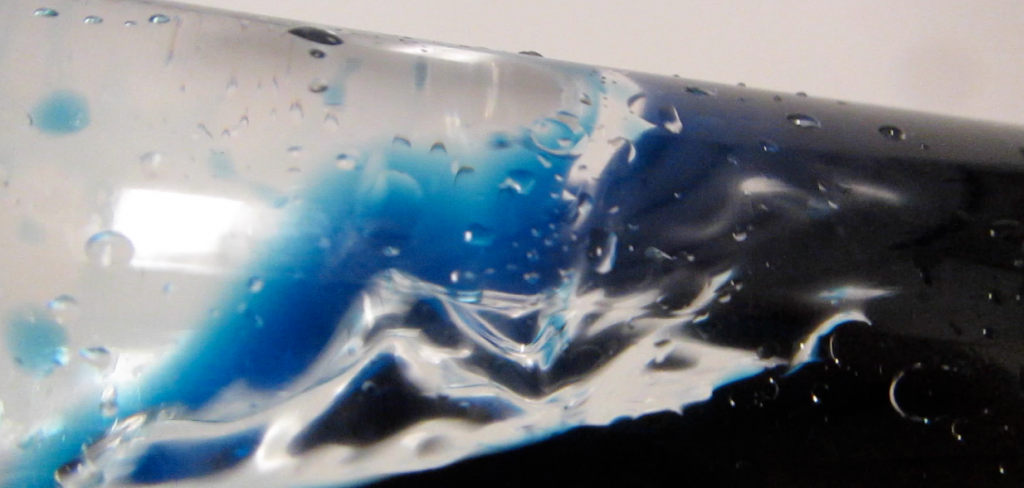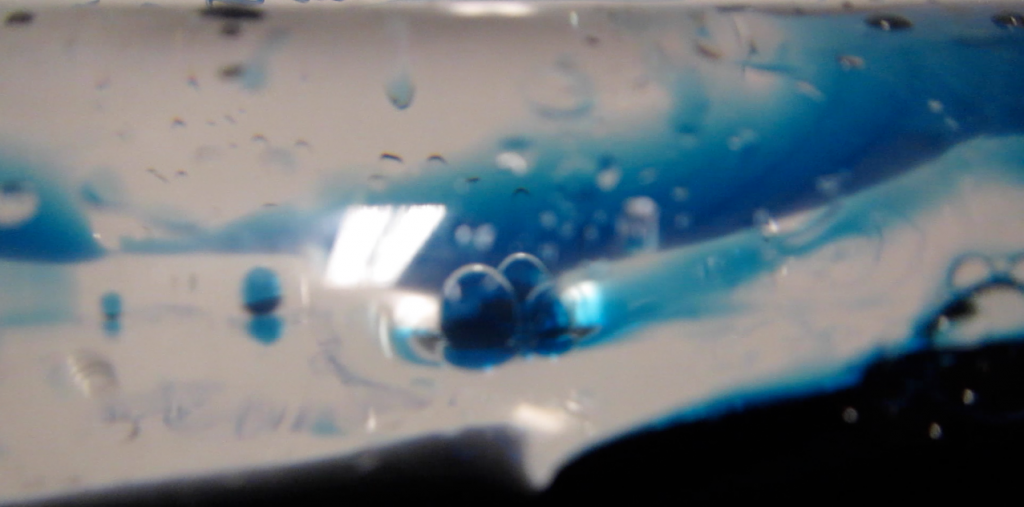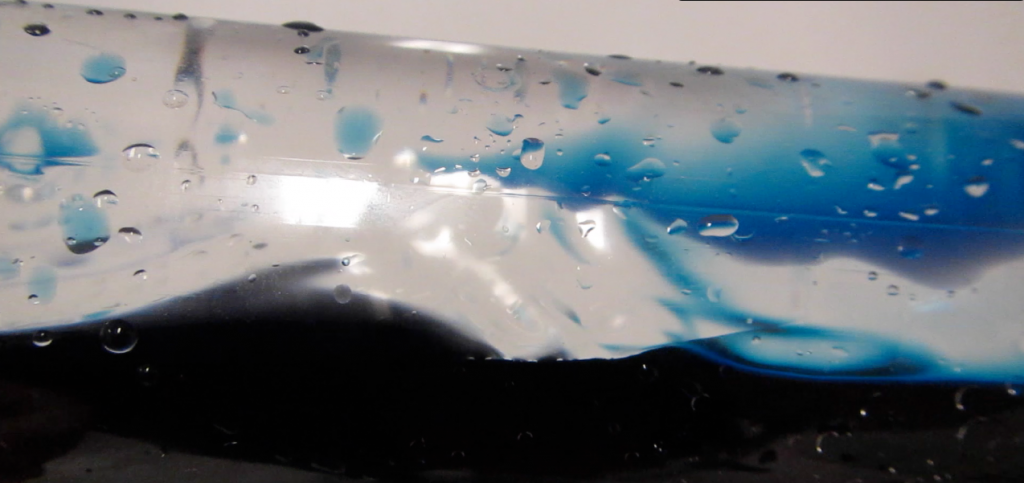
Internal waves in a bottle
Internal waves are shown in simple 0.5l bottles.
Waves travel on the interface between fluids of different densities and the phase speed of those waves depends on the density difference between the two fluids.


Internal waves on the interface between water (dyed blue) and white spirit.
The simplest way to demonstrate this in class can be seen below – two 0.5l plastic bottles are used, one half-filled with water, the other one filled with half water, half vegetable oil. Waves can very easily be excited by moving the bottles, and it is clearly visible that the waves at the interface between water and oil are a lot slower than the ones on the interface between water and air.
For showing this experiment to larger audiences when people can’t play with the bottles themselves, it really helps to color either the water or the oil layer for greater contrast. See here for different combinations that we tried in connection to forskningsdagene in Bergen.
Incidentally, those internal wave bottles are a great toy. If you don’t have one available but wish you had a paper weight as awesome as mine on your desk, here is a movie for you:

Surface imprints of internal waves | says:
[…] internal waves in a bottle […]
Internal (lee) waves in a tank. | says:
[…] this previous post, we talked about internal waves in a very simple experiment. But Geophysical […]